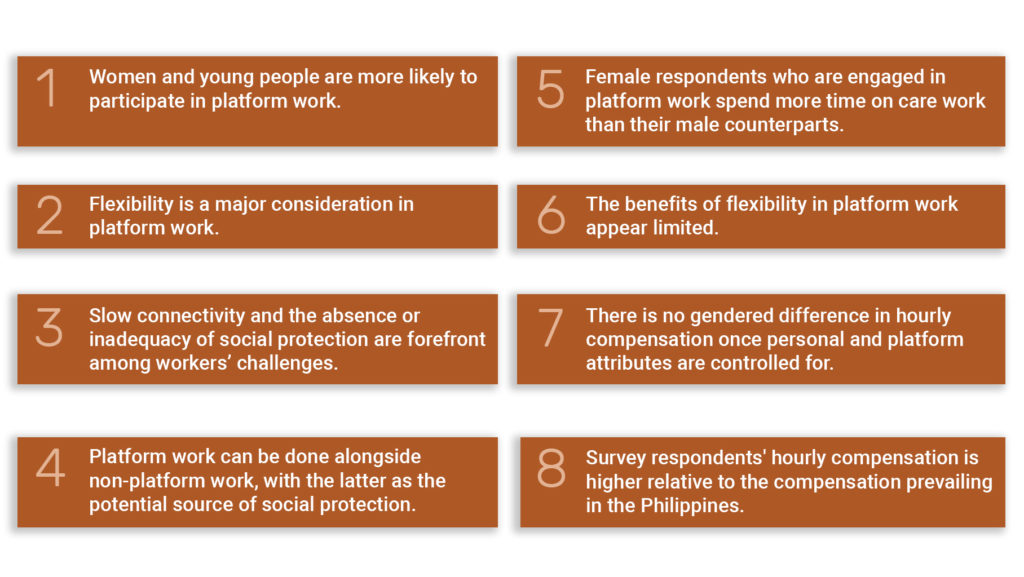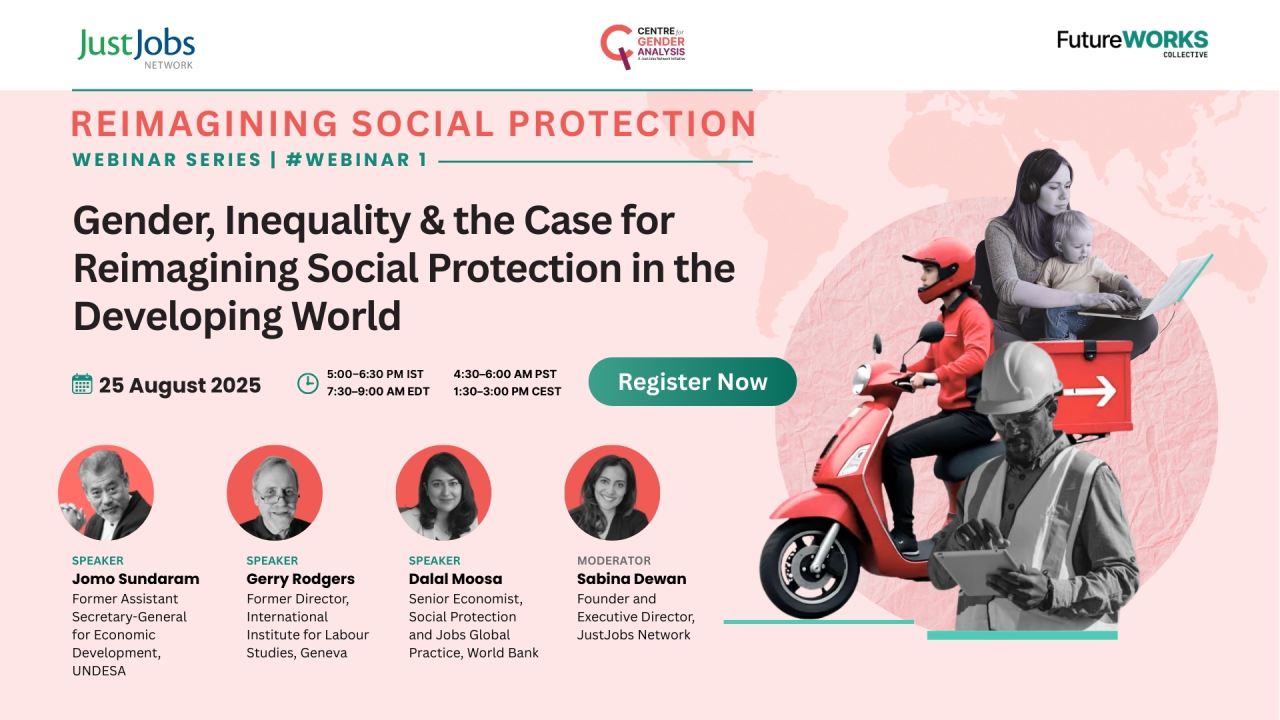
The Philippines has one of the world’s highest percentages of people engaging in crowdwork, or work that is transacted and delivered online. Based on the Online Labour Index, the country accounts for around 5% of the global online workers in 2020 and ranks 6th after India, Bangladesh, Pakistan, the US, and China. How are the country’s women faring in the digital platform economy? What are their motivations to participate? What challenges do they face and what assistance do they need to prosper in the digital economy?
Looking Back
In February 2020, the Philippine Institute for Development Studies (PIDS) joined the collaborative research initiative Women, Work, and the Gig Economy (WWGE) – supported by the International Development Research Centre, Canada, and managed by the JustJobs Network – with their project on Driving Inclusion Through Empowerment and Decent Work: The Case of Filipino Women in Online Work. It is conducted by project lead Dr. Connie Bayudan-Dacuycuy and PIDS Research Fellows Aubrey Tabuga and Ramonette Serafica.
PIDS project introductory video
The project has four main objectives:
1) To map a landscape of Information and Communications Technology (ICT) usage
2) To profile crowdworkers on digital labour platforms
3) To study policies and programs related to online work
4) To determine how women in rural spaces can benefit from the platform economy
A year into the study, PIDS researchers have made substantial progress, particularly towards the first two objectives. With the help of secondary data from the 2019 National ICT and Household Survey (NICTHS), they have been able to draw gendered perspectives on the use of the Internet and digital devices across the country, a prerequisite to better understanding women’s access to the technology required to participate in platform work. Aubrey Tabuga and Carlos Cabaero have analysed the data and compiled insights in their paper Filipinos’ Access and Exposure to ICT: A General Overview Based on the National ICT Household Survey.
The study found that while the overall usage of the Internet among the country’s population age 10 and above is at 47 percent, the difference between men (48%) and women (46%) is low. In terms of cellular phone usage, women users (81%) are slightly more than men (77%).
Regarding the use of ICT for online selling of goods, the survey shows that out of all individuals who have engaged in online selling over the past 12 months, only a quarter states that this is their primary source of income. The average monthly earning from online selling is PHP 7,774 per month (160.2 USD), men earn slightly more (PHP 10,898 or 224.5 USD) compared to women (PHP 6,041 or 124.5 USD).
Two recommendations that the paper emphasizes in order to increase ICT access and to encourage people to use it are:
1) Focus on awareness, knowledge, and skills for using ICT
2) Improve basic infrastructure such as electricity for households and coverage of cellular phone signals across the country
Additionally, from May through December 2020, the research team gained valuable insights from over 800 respondents who took part in the governmental Department of ICT’s digitaljobsPH online training program. Men and women from across the country, including both those on and off platforms, shared their perceptions and/or experiences of digital platform work. Connie Bayudan-Dacuycuy and Lora Kryz Baje wrote a comprehensive analysis of the survey in their paper Decent Work in Crowdwork: Gendered Takeaways from an Online Survey in the Philippines.

Select insights from the DICT survey
Some of the recommendations that the paper emphasizes in order to ensure that digital labor platforms do not become new vehicles of delivering old inequalities include:
1) Crafting of policies and programs towards skills development systems that are useful in any work arrangement and leveraging digital platforms to bring together all actors and stakeholders;
2) Crafting of social protection systems that adjust to the evolving nature of work;
3) Crafting of policies to address care work for women to participate in new work opportunities; and
4) Collecting nationally-representative data of platform workers to make the issues in platform work more visible.
As the COVID-19 pandemic has disrupted lives around the world, it also impacted the research plans of the project. With in-person meetings being too great a risk for both respondents and researchers, the team is now looking at conducting Key Informant Interviews (KII) and Focus Group Discussions (FGD) virtually. This shift in methods comes with upsides and challenges alike: the team recognizes the biases arising from this mode of data collection, eg. people who are likely to participate have the time and Internet resources to do so. The team is looking into how the DICT and the participation of their Local Government Unit partners can help minimize these biases.
For more info on how the WWGE research projects have adapted to the pandemic in terms of research design, methodology, and ethical considerations, read the brief Research in the COVID-19 Context: Adaptive Methods and Ethical Considerations.
Coming up in 2021
Following the publication of its initial findings, the PIDS team will engage with key stakeholders, the research community, and the wider public in a research workshop, a public seminar in May, and a conference later this year. The team will also launch a consultative dialogue with key bodies of policymaking and advocacy such as the Philippine Commission on Women, relevant government departments, workers’ representatives, and business associations.
Stay tuned for more insights from the PIDS project team and its ongoing study on the WWGE initiative page at Connected2Work.org as well as on Twitter #WomenGigWork.




